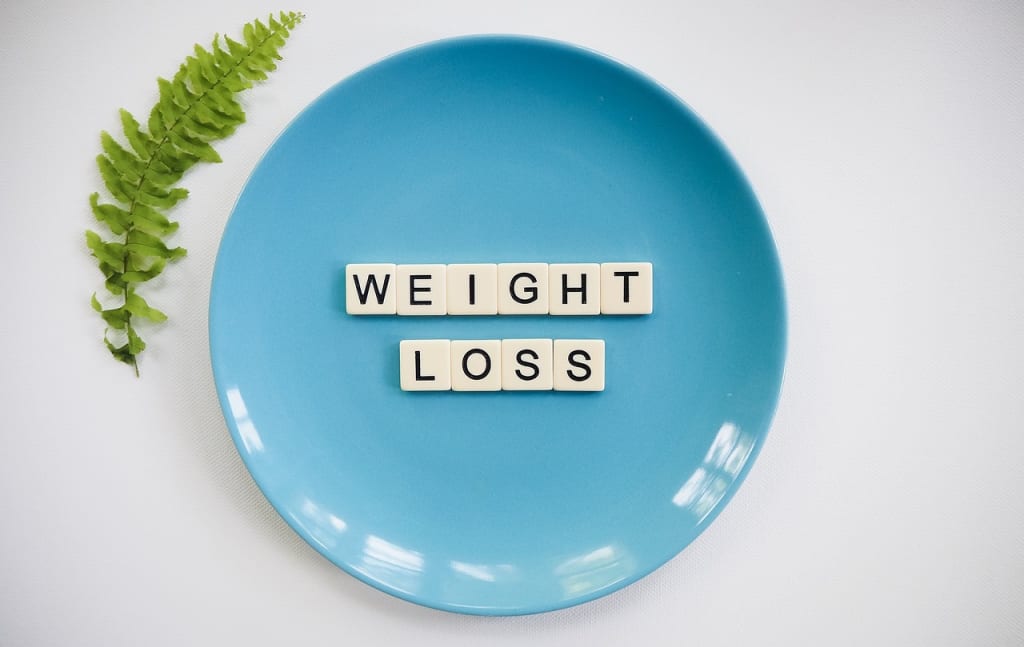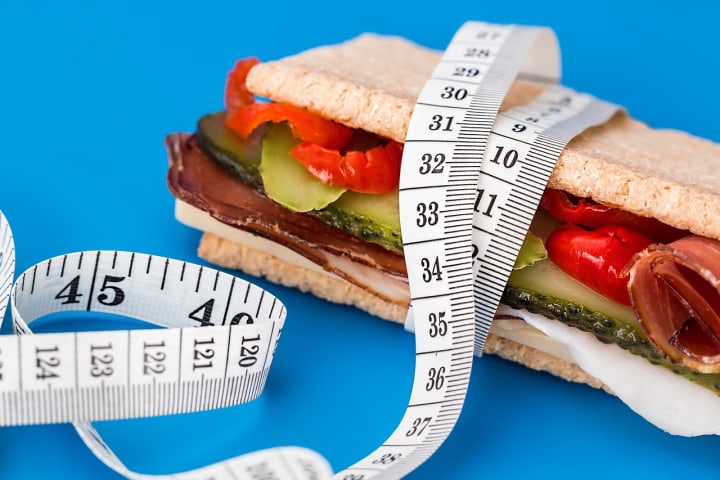Discover the Best Way to Lose Weight
Are you tired of trying fad diets and quick-fix weight loss solutions that never seem to work?

Discover the Best Way to Lose Weight: Stages to Follow Explained!
Are you tired of trying fad diets and quick-fix weight loss solutions that never seem to work? Look no further! In this comprehensive guide, we will uncover the best way to lose weight and provide you with a clear understanding of the stages you need to follow in order to achieve your weight loss goals.
By following these stages, you will not only lose weight but also improve your overall health and well-being. From setting realistic goals to maintaining healthy habits, we've got you covered.
Key Takeaways:
The best way to lose weight is by following a structured plan with clear stages to follow.
These stages include setting realistic goals, creating a healthy eating plan, incorporating regular exercise, managing stress and sleep, tracking progress, overcoming challenges, maintaining healthy habits, and celebrating success.
By following these stages, you will not only lose weight but also improve your overall health and well-being.
Stay motivated throughout your weight loss journey by tracking your progress, seeking support when needed, and celebrating your success.
Remember to focus on long-term sustainability and embracing a healthy lifestyle moving forward.
Understanding Weight Loss: The Basics
If you're embarking on a weight loss journey, it's essential to start with a basic understanding of the process. At its core, weight loss means reducing your body weight, usually by losing fat. While this may sound simple, it involves several complex physiological mechanisms and varies from person to person depending on factors such as age, gender, genetics, and lifestyle.
The most common method of measuring weight loss is by tracking your body mass index (BMI), which compares your height and weight. A healthy BMI typically falls between 18.5 to 24.9, while overweight individuals have a BMI of 25 to 29.9, and obese individuals have a BMI of 30 or higher. However, BMI is not always an accurate measure of health, and it's crucial to consider other factors such as body composition and overall fitness level.

Weight loss can have numerous benefits for your overall health and well-being. Losing weight can reduce your risk of developing chronic diseases such as cardiovascular disease and type 2 diabetes, improve your mental health, increase your energy levels, and enhance your quality of life.
Why is weight loss important?
"Excess weight is a leading cause of chronic illness in the United States, and weight loss is an effective method of reducing the risk of developing these diseases." - American Heart Association
When you carry excess weight, especially around your waistline, it can lead to numerous health problems, including high blood pressure, high cholesterol, and insulin resistance. These conditions increase the risk of heart disease, stroke, and type 2 diabetes.
Weight loss can also improve your mental health, reducing symptoms of depression and anxiety, and boost your overall quality of life by increasing your energy levels, mobility, and self-confidence.
Setting Realistic Goals: The First Stage
Before starting your weight loss journey, it's important to set realistic goals. Setting achievable targets will help you track your progress and stay motivated throughout the process. Here are a few tips for setting realistic goals:
Focus on progress, not perfection. Don't strive for a specific number on the scale. Instead, focus on making small changes to your lifestyle that will lead to sustainable weight loss over time.
Determine a healthy weight for your body. Consult with your healthcare provider to determine a healthy weight range for your body type and height. This will give you a better idea of what your weight loss goals should be.
Set short-term goals. Break your overall weight loss goal into smaller, more manageable goals. For example, aim to lose one to two pounds per week.
Make your goals specific and measurable. Instead of setting a vague goal such as "lose weight," make it specific and measurable, such as "lose five pounds in the next month."
Write down your goals. Putting your goals in writing makes them more concrete and helps you stay accountable. Post your goals in a visible place, such as on your refrigerator or bathroom mirror.
Remember, the first stage of weight loss is all about setting the foundation for success. By setting realistic goals and breaking them down into manageable steps, you'll be on your way to achieving your weight loss goals in no time!
Creating a Healthy Eating Plan: The Second Stage
The second stage of weight loss involves creating a healthy eating plan that works for you. It's important to remember that one size does not fit all, and what works for one person may not work for another. In this section, we will explore different dietary approaches and provide tips for making sustainable changes to your eating habits.
The Basics of a Healthy Eating Plan
A healthy eating plan should be balanced, varied, and provide your body with the nutrients it needs. This includes:
Eating a variety of fruits and vegetables
Including lean sources of protein, such as chicken, fish, and beans
Incorporating whole grains, such as brown rice and quinoa
Limiting processed and high-fat foods, such as fast food and sugary snacks
Portion Control
One of the keys to successful weight loss is portion control. It's important to be aware of how much you are eating and to avoid overeating. Here are some tips:
Use smaller plates and bowls to control portions
Measure out your food to ensure you are eating the recommended serving size
Eat slowly and savor your food to prevent overeating
Mindful Eating
Mindful eating involves paying attention to your body's hunger cues and eating with intention and awareness. Here are some tips:
Eat when you are hungry, not just because it's mealtime
Avoid distractions while eating, such as TV or your phone
Take time to appreciate your food and enjoy the flavors and textures
A Sample Healthy Eating Plan
Here is a sample of what a healthy eating plan could look like:
Meal Food Serving Size
Breakfast Whole wheat toast 1 slice
Scrambled eggs 2 eggs
Fruit salad 1 cup
Lunch Grilled chicken breast 3 oz
Brown rice 1/2 cup
Steamed vegetables 1 cup
Dinner Salmon fillet 3 oz
Quinoa 1/2 cup
Roasted vegetables 1 cup
Remember, the most important thing is to find a healthy eating plan that works for you and fits into your lifestyle. Take the time to experiment with different recipes and approaches until you find what works best. With time and commitment, you can make sustainable changes to your eating habits and achieve your weight loss goals.
Incorporating Regular Exercise: The Third Stage
The third stage in the best way to lose weight is incorporating regular exercise into your daily routine. Exercise offers a plethora of benefits that can help you achieve your weight loss goals faster, including:
Burning calories and fat
Building lean muscle mass
Boosting metabolism
Improving cardiovascular health
Reducing stress and anxiety
But how do you start exercising if you're not used to it? The key is to start slow and gradually increase your activity level. Aim for at least 30 minutes of moderate-intensity exercise, such as brisk walking or cycling, most days of the week. You can also try incorporating strength training exercises, such as weight lifting or resistance bands, to build muscle mass and increase your metabolism.
Here's an example of a weekly exercise routine that incorporates both cardio and strength training:
Day Activity Duration
Monday Brisk walking 30 minutes
Tuesday Strength training 20 minutes
Wednesday Cycling 30 minutes
Thursday Rest day -
Friday Yoga 30 minutes
Saturday Brisk walking 45 minutes
Sunday Strength training 20 minutes
Remember that exercise alone is not enough to achieve significant weight loss. You still need to follow a healthy eating plan and manage your stress and sleep to see optimal results. The key is to find activities you enjoy and make exercise a regular part of your lifestyle.

Managing Stress and Sleep: The Fourth Stage
Stress and lack of sleep play significant roles in weight loss. When you experience stress, your body releases a hormone called cortisol, which increases your appetite. As a result, you may seek comfort in food, leading to weight gain. Additionally, a lack of sleep can disrupt your hormones, leading to an increase in hunger and a decrease in satiety. Therefore, managing stress and sleep is crucial for weight loss success.
Here are some practical strategies for managing stress:
Practice relaxation techniques, such as deep breathing, yoga, or meditation.
Engage in regular physical activity, such as walking or swimming, which can help reduce stress levels.
Take breaks throughout the day to engage in activities you enjoy, such as reading, listening to music, or spending time with friends and family.
Consider speaking with a therapist or counselor to help manage stress levels.
Here are some practical strategies for optimizing sleep quality:
Stick to a regular sleep schedule, going to bed and waking up at the same time every day.
Create a relaxing bedtime routine, such as taking a warm bath or reading a book.
Avoid caffeine and alcohol before bedtime, as they can interfere with sleep quality.
Ensure your sleeping environment is comfortable and conducive to restful sleep, with minimal noise and distractions.
By incorporating stress-management techniques and optimizing your sleep habits, you can support your weight loss goals and promote overall health and well-being.
Tracking Progress and Making Adjustments: The Fifth Stage
Tracking your progress is an essential part of the weight loss journey. It helps you stay motivated and make necessary adjustments to your weight loss plan. There are several methods of tracking your progress, including:
Keeping a food diary
Measuring your body composition
Tracking your workouts
Monitoring your sleep and stress levels
A food diary is a useful tool for tracking what you eat and identifying areas where you can make healthier choices. Measuring your body composition, such as your weight, body fat percentage, and muscle mass, can give you a more accurate picture of your progress than just relying on the scale. Tracking your workouts can help you stay accountable and ensure you are making progress in your fitness goals. Finally, monitoring your sleep and stress levels can help you identify patterns that may be hindering your weight loss progress.
Once you have tracked your progress, you can make necessary adjustments to your weight loss plan. If you are not seeing the results you want, you may need to adjust your diet or exercise routine. It's important to make changes that are sustainable and realistic for your lifestyle. If you need help making adjustments, consider consulting with a registered dietitian or personal trainer.
Remember that weight loss is not always a linear process. There may be weeks where you don't see any progress, but that doesn't mean you should give up. Be patient and stay committed to your goals, and you will eventually see results.
"Success in any endeavor requires single-minded attention to detail and total concentration." - Willie Sutton
Overcoming Plateaus and Challenges: The Sixth Stage
Plateaus and challenges are inevitable during any weight loss journey, but the key is to not let them derail your progress. Here are some strategies for overcoming plateaus and challenges:
Stay Motivated
One of the biggest challenges people face during weight loss is a lack of motivation. To stay motivated, try setting small goals for yourself, rewarding yourself for reaching milestones, and reminding yourself of the reasons why you started your weight loss journey.
Adjust Your Routine
If you find that your current routine isn't working for you, don't be afraid to make adjustments. This can include changing up your exercise routine, trying a new healthy recipe, or practicing stress-management techniques.
Seek Support
Having a support system can make all the difference during weight loss. Consider joining a weight loss group, talking to a friend or family member about your goals, or working with a professional, such as a dietitian or personal trainer.
Track Your Progress
Tracking your progress can help you stay accountable and motivated. Consider keeping a food diary, tracking your exercise routine, or measuring your body composition to see how far you've come.
Remember, plateaus and challenges are a normal part of the weight loss process. By staying motivated, adjusting your routine, seeking support, and tracking your progress, you can overcome these obstacles and continue on your journey to a healthier you.
Maintaining Healthy Habits: The Seventh Stage
After achieving your weight loss goals, the next step is to maintain the healthy habits you have formed. This is the final and most crucial stage of your weight loss journey. It's important to remember that maintaining a healthy weight is a lifelong commitment. Here are some tips to help you maintain your healthy habits:
Stay Active: Regular exercise is key to maintaining a healthy weight. Aim to exercise for at least 30 minutes per day. You can try different workouts like jogging, yoga, or swimming to keep things interesting.
Eat a Balanced Diet: Stick to a healthy eating plan that includes a variety of fruits, vegetables, whole grains, lean proteins, and healthy fats. Avoid fad diets or drastic calorie restrictions.
Track Your Progress: It's important to continue tracking your weight, diet, and exercise routine. This will help you stay accountable and make necessary adjustments if needed.
Stay Motivated: Celebrate your success and continue to set new goals for yourself. Surround yourself with supportive friends and family who encourage your healthy habits.
Practice Self-Care: Prioritize self-care activities like getting enough sleep, practicing mindfulness, and managing stress. Taking care of your mental health is just as important as your physical health.
Remember, maintaining healthy habits is a lifelong journey. Don't get discouraged if you have setbacks - just keep moving forward. With dedication and consistency, you can maintain a healthy weight and live your best life!
Celebrating Success: The Final Stage
Congratulations on reaching the final stage of your weight loss journey! This is an exciting moment that should be celebrated and acknowledged. By achieving your weight loss goals, you have demonstrated an incredible level of commitment and discipline, and you deserve recognition for your accomplishment.
One way to celebrate your success is by treating yourself to something special. This could be anything from a relaxing day at the spa to a special dinner with friends and family. Whatever you choose, make sure it is something that makes you feel good and reflects the hard work you have put in to achieve your goals.
Another way to celebrate your success is by reflecting on how far you have come. Take a moment to look back on the journey you have taken and the obstacles you have overcome. Recognize the progress you have made and the positive changes you have implemented in your life.
It's important to remember that celebrating your success is not just about acknowledging your achievements, but also about practicing self-care and self-improvement. This means continuing to prioritize your health and well-being by maintaining the healthy habits you have developed throughout your weight loss journey.
Lastly, don't forget to share your success with others! Your weight loss journey may have inspired others to make positive changes in their own lives, so be sure to encourage and support those around you who may be on their own weight loss journey.
Conclusion
Now that you have a clear understanding of the stages to follow, it's time to take action and start your weight loss journey. Remember, losing weight is not a quick fix, but a long-term commitment to your health and well-being.
Setting realistic goals, creating a healthy eating plan, incorporating regular exercise, managing stress and sleep, tracking your progress, overcoming challenges, maintaining healthy habits, and celebrating your success are all essential components of a successful weight loss journey.
Make A Plan And Stick To It
Take the time to make a detailed plan that works for you and fits your lifestyle. Stick to it, and be patient with yourself. Remember that progress takes time, and it's okay to make mistakes along the way.
Stay Positive And Keep Going
Finally, stay positive and keep going - you've got this! Surround yourself with a support system of friends and family who will encourage you throughout your weight loss journey. And most importantly, don't forget to celebrate your progress and reward yourself along the way.
With these stages in mind, you are well on your way to achieving your weight loss goals and unlocking your full potential for a healthier, happier life.
FAQ
What is the best way to lose weight?
The best way to lose weight is by setting realistic goals, creating a healthy eating plan, incorporating regular exercise, managing stress and sleep, tracking progress, overcoming challenges, maintaining healthy habits, and celebrating your success.
What are the basics of weight loss?
Before diving into the stages of weight loss, it's important to understand the basics. This section will explain what weight loss actually means, how it affects your body, and why it is important for your overall health and well-being.
How do I set realistic weight loss goals?
The first stage of losing weight is setting realistic goals. In this section, we will discuss the importance of setting achievable targets, how to determine a healthy weight for your body, and strategies for staying motivated throughout your weight loss journey.
How do I create a healthy eating plan?
The second stage of weight loss involves creating a healthy eating plan. We will explore different dietary approaches, such as balanced nutrition, portion control, and mindful eating, to help you make sustainable changes to your eating habits.
How can I incorporate regular exercise into my weight loss routine?
The third stage focuses on incorporating regular exercise into your weight loss routine. We will discuss the benefits of exercise, different types of workouts that promote weight loss, and tips for staying consistent with your fitness regimen.
How can I manage stress and improve sleep for weight loss?
Managing stress and ensuring adequate sleep play crucial roles in weight loss. This section will explore the impact of stress and lack of sleep on your weight, as well as provide practical strategies for stress management and improving sleep quality.
How do I track my progress and make adjustments?
The fifth stage involves tracking your progress and making necessary adjustments to your weight loss plan. We will discuss various methods of tracking, such as keeping a food diary and measuring body composition, and how to evaluate your results and make effective changes.
What should I do when I hit a plateau or face challenges?
Plateaus and challenges are common during weight loss. This section will provide strategies for overcoming plateaus and dealing with challenges that may arise, including tips for staying motivated, adjusting your routine, and seeking support when needed.
How do I maintain healthy habits after weight loss?
The seventh stage focuses on maintaining the healthy habits you have developed throughout your weight loss journey. We will discuss the importance of long-term sustainability, strategies for preventing weight regain, and how to embrace a healthy lifestyle moving forward.

How should I celebrate my weight loss success?
The final stage of weight loss is celebrating your success. In this section, we will explore ways to acknowledge and reward yourself for achieving your weight loss goals, while also emphasizing the importance of self-care and continued self-improvement....
About the Creator
POLOCHWO
People who believe that anything is possible are the ones who are able to discover and create.






Comments
There are no comments for this story
Be the first to respond and start the conversation.